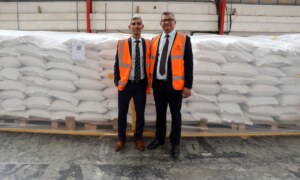The popularity of the Start-Up Visa (SUV) surged again in August as almost a third more new permanent residents settled in Canada under that entrepreneurship program during that month than had in July, the latest data from Immigration, Refugees and Citizenship Canada (IRCC) reveals.
In August, 175 new permanent residents were welcomed to Canada through the SUV, up 29.6 per cent from the 135 in July.
IRCC has allocated substantial planned admissions for permanent residence to Start-Up Visa applicants. Whereas this number has only been 1,000 per year during the past few years, in 2023, 2024 and 2025, this number will increase dramatically to 3,500, 5,000 and 6,000 respectively.
The uptick in monthly immigration through the SUV during the eighth month of the year was even more remarkable because it came on the heels of a spike in monthly SUV immigration in July.
After welcoming 65 new permanent residents under the entrepreneurship program in June, Canada saw a boom in SUV immigration of 107.7 per cent in July.
By the end of August, Canada had welcomed 640 new permanent residents through the SUV this year, putting the country on track – if the current levels of SUV immigration continue through to the end of the year – for up to 960 new permanent residents to settle in Canada under the SUV by the end of the year.
Read More
Marc Miller Says Canada Will Raise Francophone Immigration Targets
Canada Extends Immigration And Citizenship Document Relief For Wildfire Victims
Canada Launches Humanitarian Immigration Pathway For Colombians, Haitians And Venezuelans
That level of SUV immigration would be 67 per cent higher than the 575 new permanent residents who immigrated to Canada under that program last year.
The most popular destinations for immigrant entrepreneurs arriving under the SUV so far this year have been Ontario and British Columbia.
Ontario had received 370 new permanent residents through the program at the end of the first eight months of this year and British Columbia had welcomed 200 through that immigration program during the same period.
Alberta had added 20 new permanent residents through the program by the end of August and Manitoba had welcomed 50 immigrant entrepreneurs through the SUV in the first eight months this year.
Ontario Saw The Most SUV Entrepreneurs Arrive, Nova Scotia The Least
The only other province to see the arrival of immigrant entrepreneurs through the SUV this year has been Nova Scotia which had by the end of August welcomed 10.
None of the other provinces or territories added any new permanent residents through the SUV in the first eight months of this year.
The SUV program generates much lower overall numbers of new permanent residents than federal worker programs, such as the Federal Skilled Worker (FSW) and Federal Skilled Trade (FST), the Provincial Nominee Programs (PNP) or the regional economic development programs including the Atlantic Immigration Program (AIP) or Rural and Northern Immigration Pilot (RNIP).
Due to these smaller numbers, the monthly fluctuations in the number of new permanent residents under the SUV can sometimes seem exaggerated when examined in percentage terms.
Candidates applying under the SUV program can initially come to Canada on a work permit supported by their designated Canadian investor before their application for permanent residence is finalized.
The entire process of applying for permanent residence to Canada through the SUV is currently estimated by the IRCC to take 37 months.
Watch Video
Under the SUV, three types of private-sector investors are considered: angel investors, venture capital funds, and business incubators.
A designated venture capital fund must confirm that it is investing at least $200,000 into the qualifying business. Candidates can also qualify with two or more commitments from designated venture capital funds totalling $200,000.
A designated angel investor group must invest at least $75,000 into the qualifying business. Candidates can also qualify with two or more investments from angel investor groups totalling $75,000.
A designated business incubator must accept the applicant into its business incubator program. It is up to the immigrant investor to develop a viable business plan that will meet the due diligence requirements of these government-approved designated entities.
Immigration Lawyers Can Help Immigrant Entrepreneurs Navigate Canada’s Start-Up Eco-System
That investing and the development of the business is usually done with the help of business consultants in Canada’s start-up ecosystem with oversight from experienced corporate business immigration lawyers who can ensure a start-up’s business concept meets all industry-required terms and conditions.
The basic government-imposed candidate eligibility requirements for the SUV are:




Leave a comment